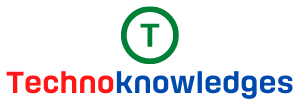In this digital world, you might already know the content’s worth. If your website doesn’t have content, it won’t be able to compete with its competitors on search engine rankings. Occasionally, Google has rolled out several updates to its ranking algorithms.
Among these updates, this search engine giant has discouraged duplicate content and shed light on its harmful effects. You cannot use the same content on multiple pages of your site, as Google perceives each page as a sole entity, and it has to gain rank on SERP individually.

Several elements are involved in the creation of content that is capable of generating fruitful results. These elements involve consistency, engagement, resourcefulness, and uniqueness. If any of these traits go missing from your content, it won’t be able to reap the results that you expect from it. Among all the things, plagiarism is considered quite dangerous for your presence on the web.
It is often said that duplicated content leads to several disasters for a website, affecting its position in Google. If you want to know how Google views plagiarized content, keep reading. We will also let you know what the myths you must not worry about are and how you can deal with this plagiarism problem. So, let’s get started without any further ado!
Read- How to use Google Search Console for Keyword Research In 2022
How Google Views Plagiarized Content?
Plagiarized content, in easy words, appears on more than one location or URL over the web. Google also views plagiarized content similarly and asks webmasters to work on avoiding it. You might wonder whether Google sees a few identical lines of text as plagiarized or the entire text on a web page copied from another page.
As per Google’s guidelines, duplicated or plagiarized content is referred to as substantive chunks of text that match entirely the content of other domain(s) in the same language. However, in several instances, Google has not applied hard and fast sanctions over the usage of duplicate content. You can read the myths roaming about plagiarized content below to understand what you need and what you do not need to worry about.
Myths About Plagiarized Content
You might have read or heard repeatedly that duplicate content hurts your search engine ranking. It’s a myth, as it doesn’t have as much of an impact on the search rankings as it has been thought. While indexing a page, Google considers a lot of factors.
Among these factors, Google gives more value to the unique content that doesn’t appear anywhere else on the web. However, this fact doesn’t mean that duplicated content will not get indexed, or your rankings on SERP will decline.
Another widespread myth about duplicated content is that it can cause you to face penalties from Google. This is not true, as Google penalizes pages or sites that use plagiarized content to manipulate search engine rankings.
You’ll get several similar results appearing on the result pages for a single entered query. Many pages contain duplicated content, which isn’t meant to be deceptive. If any page is plagiarizing text on purpose and desires to deceive Google, penalties will come their way only if that is the case.
How to Deal with Plagiarized Content?
Plagiarism occurs for several reasons. You might have created a new URL or page for an existing product and updated it with the same content. Even though your intentions aren’t wrong, it might affect your search engine rankings. In this scenario, you can use 301 redirects to direct the traffic from an old URL to a new one. To detect plagiarized content, you can move towards the use of technology.
Dealing with plagiarized content has become easier since online tools like plagiarism checkers were introduced. You can check for plagiarism in any text and identify plagiarism in your text with a plagiarism checker. If your text contains duplicated chunks, this tool will recognise them and let you know the sources from which it was plagiarized.
Once you have encountered plagiarized content through a plagiarism detector, you need to make the plagiarized sentences unique to get rid of it and save yourself from its negative consequences. You can rewrite those sentences or paraphrase using paraphrasing tools.
Final Words
The easy availability of plagiarism checkers has made it easier for webmasters to deal with plagiarized content. If you want to stand above the competition, you need to come up with genuine content, as Google admires information that isn’t already available over the web.
